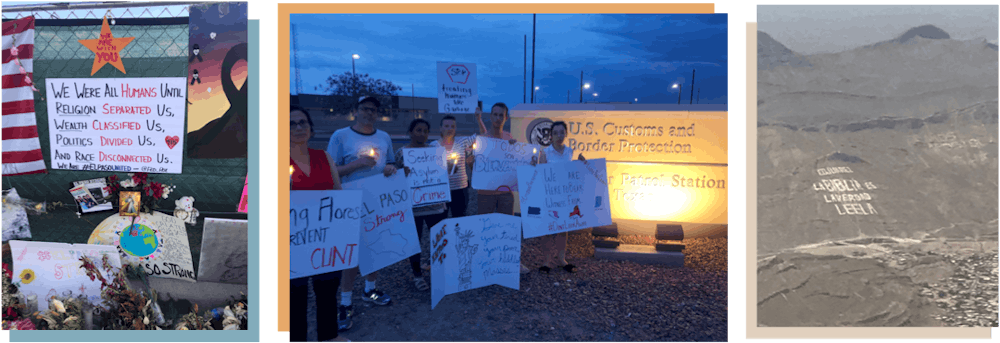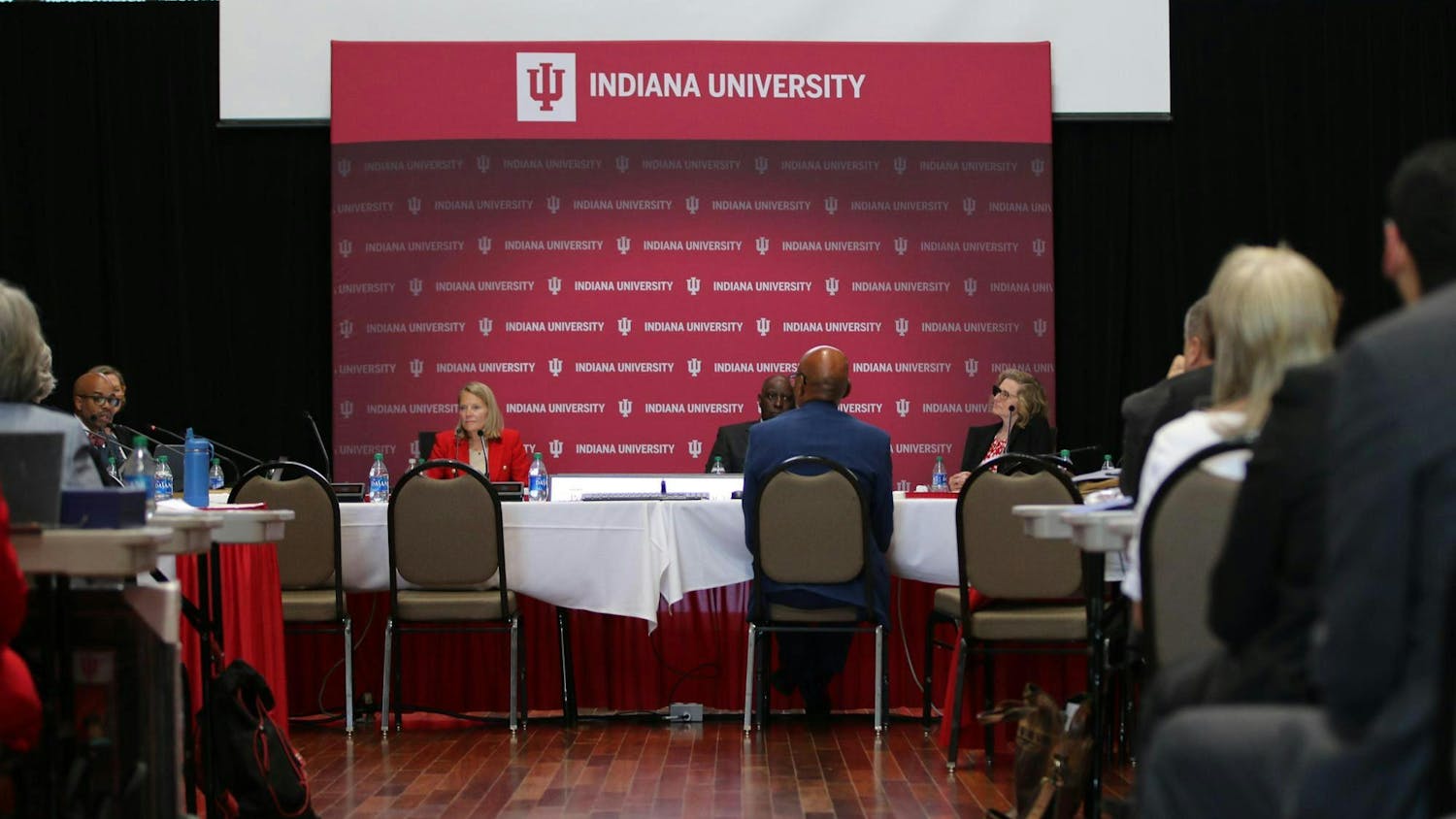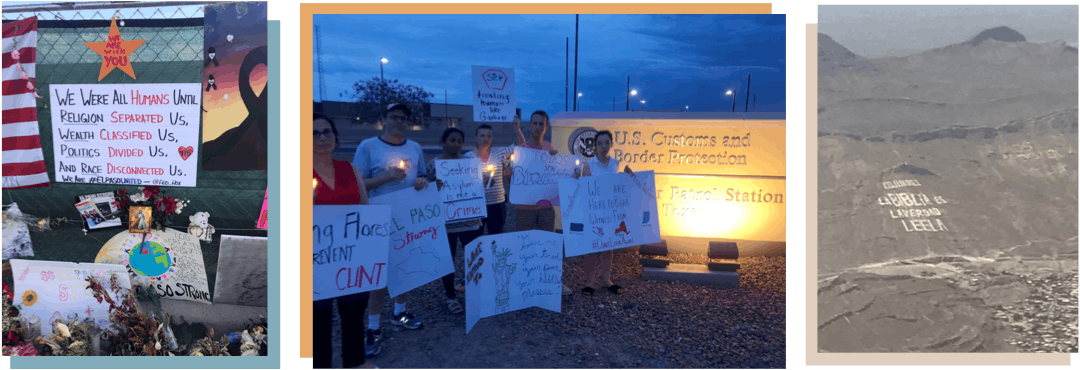
The plane skirted through the sky over the desert, inbound for El Paso, Texas. Stepping off the plane in the 90-degree dry heat of Texas, we caught sight of the mountain peak in the distant Ciudad Juárez, Mexico, with the words “la biblia es la verdad leela” affixed to the top. This was America at the border. It was the America we were not used to seeing.
We joined a team of volunteers through a grassroots organization, Citizen Presence, founded by Georgetown Law Professor Heidi Feldman. With the hope of sending a constant stream of volunteers to El Paso to witness the conditions along the border and at ports of entry, Feldman garnered thousands of dollars via crowdfunding to finance volunteer trips to El Paso.
Through our visit to El Paso, we stood in solidarity with migrants seeking safety from harm they face in their countries of origin. We sat in courtrooms as migrants appeared before judges, only to be removed from the United States, a country viewed by many as a beacon of safety and refuge. We witnessed the conditions at the border and brought those observations back to Indiana to share.
The crisis at the border is real.
Desperate times call for desperate measures. This expression seemed to serve as the logic behind President Donald Trump’s decision to declare a state of emergency stemming from “an invasion” along the U.S.-Mexico border. In a desperate attempt to secure funds for his vanity project along the southern border, Trump’s declaration of a national emergency shed light on the measures the president will take to get what he wants, even if that means exerting powers outside the Constitution's boundaries.
Trump proudly proclaimed amidst the battle with Democrats over border wall funding that “We’re going to confront the national security crisis on our southern border, and we’re going to do it one way or the other.” Trump is correct. There is a crisis along the U.S.-Mexico border. Our time witnessing conditions at the border would prove, however, that this crisis is not the crisis Trump has led the nation to fear. The crisis along the border is a manufactured product, stemming from failed immigration policy and xenophobic rhetoric pouring from the White House.
Our first night in El Paso was spent standing outside the Clint Border Patrol Station in Clint, Texas, the site that came under fire for the mistreatment of children in detention. Standing outside the facility with signs in one hand and candles in the other, we watched as border patrol cars entered and left the facility, with no semblance of what was going on inside.
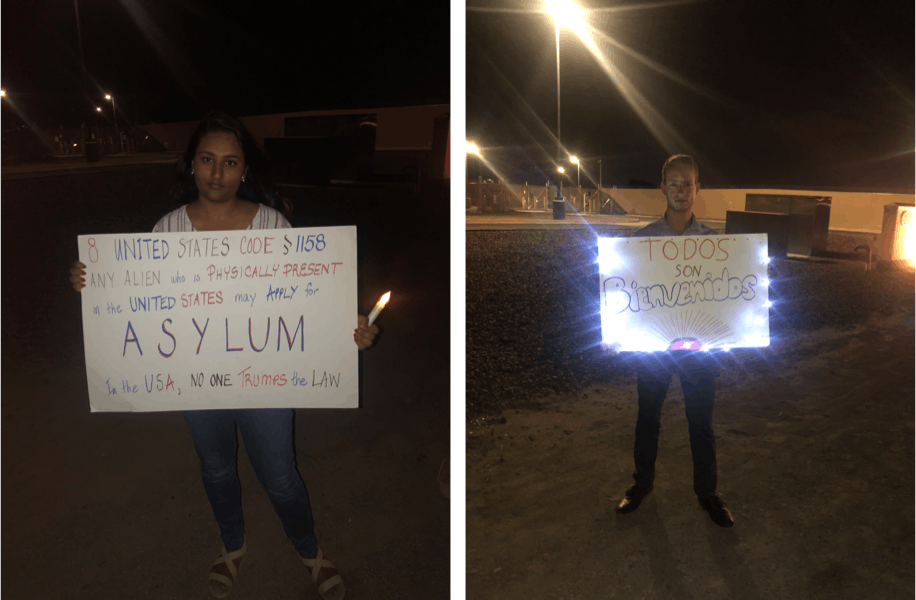
The candles we held in our hands during the vigil did little to illuminate the atrocities that occur behind the walls of the station. We stood in silence, thinking of the lives affected by family separation and detention.
Our thoughts from the vigil at the Clint facility guided our discussion with the office of Texas Rep. Veronica Escobar, D-16th District, during a briefing on the Clint Border Patrol Station. The briefing provided valuable insight into the cruelties migrants face during periods of detention at the facility. Escobar’s staff described the chain link fences that caged hundreds of migrants in tight quarters and the lack of food available for those in detention.
Escobar’s staff highlighted the lack of transparency and accountability within the Clint facility and the Trump Administration's efforts to leave Escobar’s office out of the equation when creating policy regarding detention at Clint. While the crisis on the border has persisted for years, the staff made it clear that the Trump administration is doing everything possible to make asylum-seeking impossible.
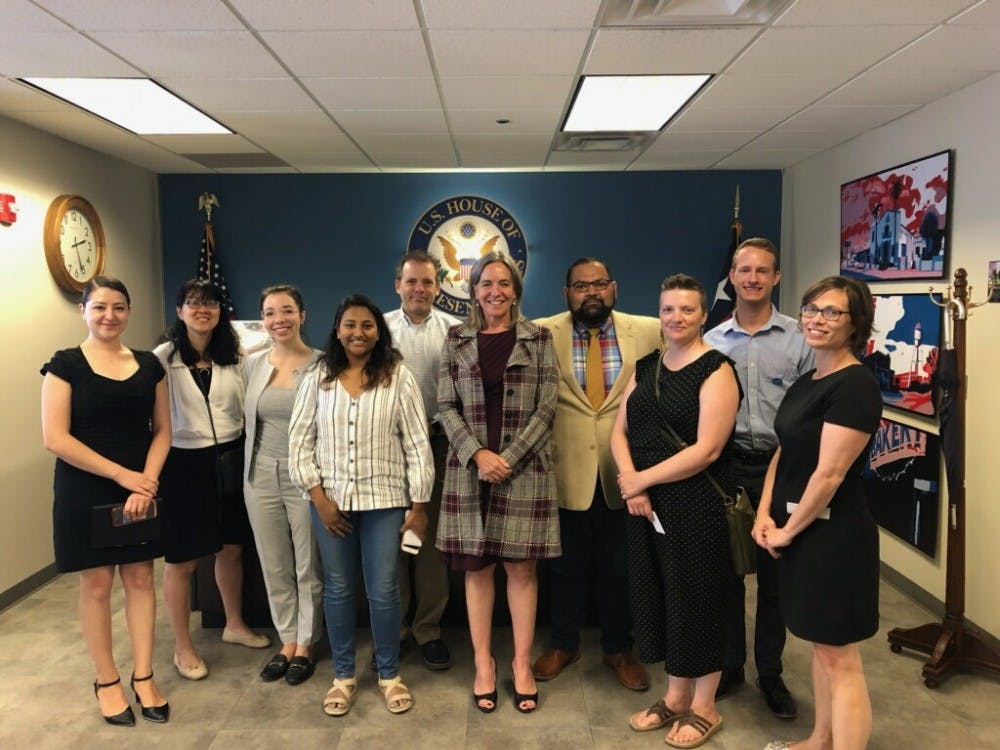
The crisis at the border is further exacerbated by the judicial proceedings migrants must endure before asylum can be granted. Sitting in the back rows of the court rooms, we watched as judges appeared via videoconference. This setup led to obvious miscommunication and confusion for the court staff and the immigrants awaiting trial — especially native Spanish speakers. Issues surrounding technology and the general absence of structure in the proceedings directly harmed the efficacy and efficiency of the court thereby hindering due process for asylum-seekers.
We sat in silence as the court denied a woman’s plea for asylum on the basis of domestic violence, as the attorney general refuses to acknowledge domestic violence as a legitimate plea for asylum. Through this, the bureaucratic inefficacy of the court becomes clear. Decision making at the highest echelons of the United States government directly contributes to the failure of the court to protect migrants, contributing to the growing crisis at the border.
The crisis is not a cause of an influx of refugees and immigrants. The crisis is not a cause of economic strain due to migration. The crisis is a manufactured problem rooted in anti-immigrant sentiments and xenophobia.
El Paso is persistent and proud.
Signs reading “ports of entry” and “Paso del Norte” lined the highway as we drove through El Paso, guiding us toward the U.S.-Mexico border. Often, the border wall would appear alongside the road we travelled — a constant reminder of the manmade division between the people of El Paso and Ciudad Juárez.
While the environment around the border was stark, the El Paso community was lively, unified and unwavering in their strength and pride. This was evident from the honks and waves of approval we received while protesting the government's anti-immigrant agenda in the city's center.
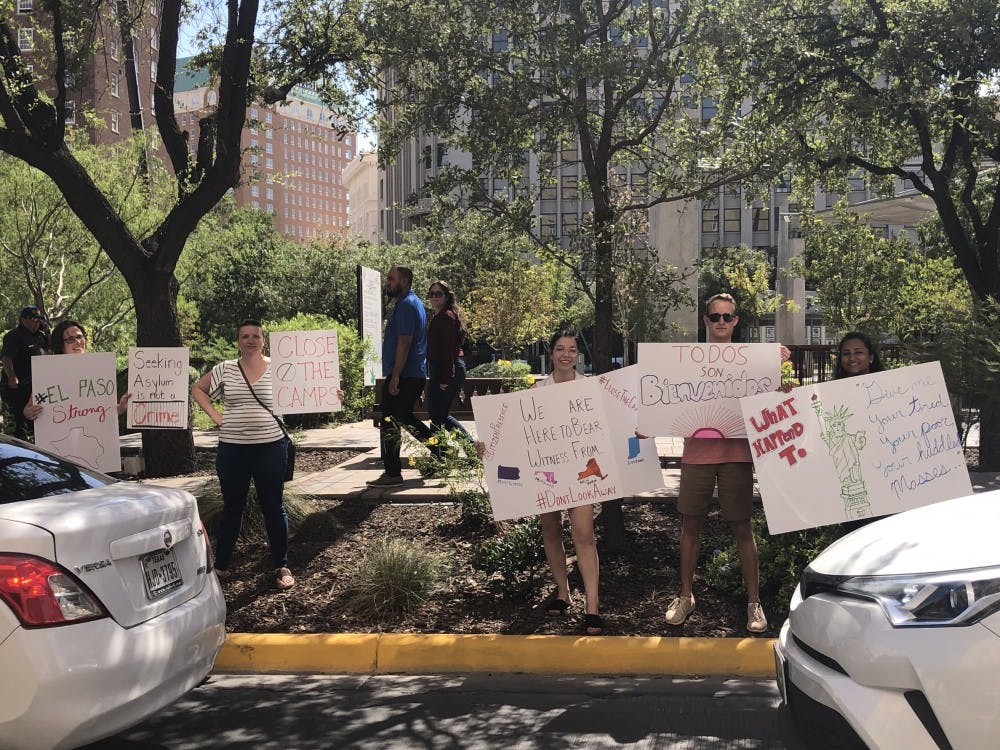
The support we saw illuminated the genuine compassion El Pasoans have for the immigrants seeking safety in the United States, a tone that differs greatly from the xenophobic rhetoric that divides the nation.
El Paso’s pride and sense of community would not falter, even amidst the toughest setbacks, like the domestic terror attack at the El Paso Walmart that claimed 22 lives, only 19 minutes after a xenophobic and hate-filled manifesto appeared online. The connection between anti-immigrant sentiments and the act of domestic terror was clear. Nevertheless, El Paso grew in strength and unity, casting out the hate and xenophobia that motivated the shooter to act.
Pragmatic efforts are required in policy, education, and service to quell the crisis.
Our visit with the Border Network for Human Rights (BNHR) campaign solidified the reality that comprehensive immigration reform is a farce. There is no sweeping passage of legislation that can fix the crisis at hand. Healing the wounds inflicted by the border crisis requires pragmatic and community-based efforts that target the roots of the issue. The director of BNHR stressed the importance of developing common-sense solutions like mandating the use of body cameras during border enforcement operations to ensure accountability and transparency. The importance of pragmatic solutions like this cannot be ignored.
Elevating cultural awareness and education constitutes another facet of pragmatic action. In an effort to increase our cultural awareness, we visited Chamizal National Memorial where we gained a greater understanding of the rich history that El Paso and Ciudad Juárez share. The memorial, divided by the border wall, spans both El Paso and Ciudad Juárez, serving as a symbolic bridge between the two cities.
While teaching us about the park's history, Chamizal National Memorial’s Outreach Coordinator spoke of the racism he faces and the social impact racial profiling has on the lives of Mexican-Americans. He recalls watching children of deported immigrants or asylum seekers run through the Memorial from Ciudad Juárez to El Paso everyday to attend school, seeking greater educational opportunities in the United States.
Standing at the center of what had become the pathway to school for children in Ciudad Juárez, we recognized the need to speak out against nativism, break barriers that stand in the way of unity, and strive for pragmatic solutions at an individual level to begin healing the divide in our nation.
Whether individual action is taken through a PB&J-making operation like the one we completed during our trip or through donations of food and non-perishable items, the ability to make a difference on an individual level in border communities exists. Sitting back and watching headlines on the news will simply not suffice.
It is time to act
We heard El Pasoans loud and clear. The immigration crisis is a manufactured product that has lasted for decades but has worsened under the Trump Administration. The xenophobic rhetoric surrounding Hispanic communities, asylum-seekers and undocumented immigrants serves as a fear-mongering tactic used by the President to garner support for his anti-immigrant agenda. People on the border feel a sense of urgency and it is time the rest of America wakes up.
The message we bring back from El Paso is simple: Bear witness to the current crisis at the border. Set aside the apathy and indifference to make room for the systematic change so desperately needed along the border. Don't stop talking about it. Don’t ignore it. Don't become desensitized. Call your representatives and express your concern. Erasing stereotypes and misconceptions is a responsibility that falls on all of us. The crisis can come to an end, but only through our united efforts to amplify the calls for change that have been ignored for far too long.

